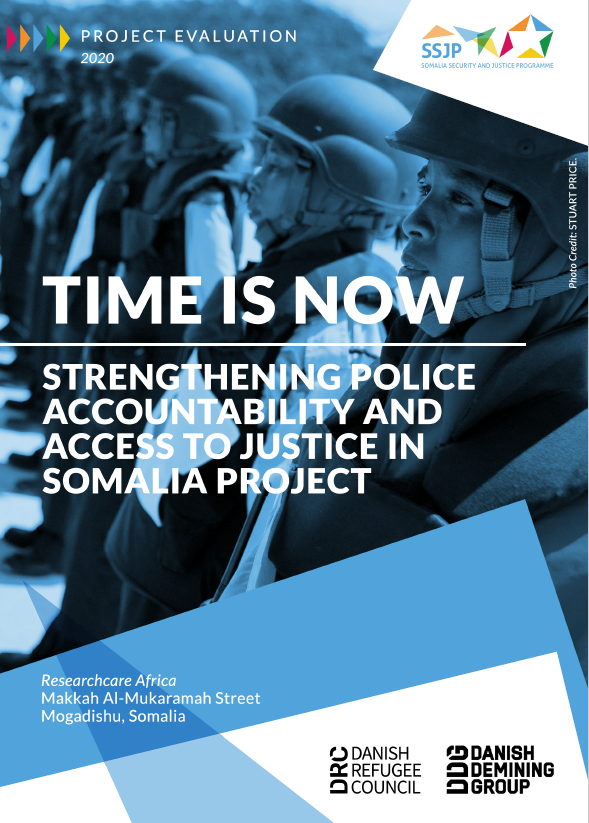This report reflects the results of an evaluation study conducted for Danish Demining Group (DDG) for the UK’s Department for International Development (DFID) funded Time is Now: Strengthening Police Accountability and Access to Justice in Somalia project. The programme was implemented in 10 districts in Hirshabelle state, Jubaland state and South West state in South Central Somalia from September 2017 to July 2020.
Findings include:
- Police training is welcomed as relevant and sparked notable improvements in the arrest and detention of suspects in most districts. Respondents in Baidoa, Beletweyne, Jowhar, Xudur, Wajid and Warsheikh districts reported positive changes in the treatment and arrest of suspects and criminals prior to detention.
- Citizen-police relations significantly improved although this varied across districts. This was largely attributed to the many platforms established through SSJP, including the Community Police Dialogue and Cooperation (CPDC) initiative, civilian oversight committees, security and justice forums and gender desks, all of which were intended to build trust and collaboration between police and communities.
- Donor support for strengthening the traditional justice system largely prioritizes key issues such as strengthening capacity building, infrastructure (building offices), and effectiveness to deliver fair justice. However, it has overlooked other critical issues such as the inclusion of women and minority groups into membership councils. Women respondents welcomed the expansion of the Guurti to include women as a milestone in promoting women’s voices in community decision making.
- The creation of district security and justice forums and community platforms such as CPDCs helped build trust between communities and police and enhanced social cohesion.
- Police training has had a positive impact on changing police attitudes towards people and encouraged police commanders to conduct internal reforms, but many structural reforms are still needed to strengthen police capacity on the new policing model, improve service delivery and enhance police understanding of human rights issues.
- Formal government courts face multiple challenges, including human resources, infrastructure and capacity.
- The level of awareness of xeer agreements as well as the existence of gender desks in programme locations was low, despite awareness raising efforts as part of the programme.
- The programme overlooked the importance of religious courts, which also work with traditional and government courts to arbitrate complex cases involving murder, injury and inheritance.
Recommendations include:
- Future investments should seek to improve public awareness and promote the use of existing mechanisms.
- There is a need to support formal government courts address the challenges they face.
- Introduce toll-free numbers to help improve information sharing and reporting between community representatives and police.
- Future investments should extend focus to religious courts as well.

